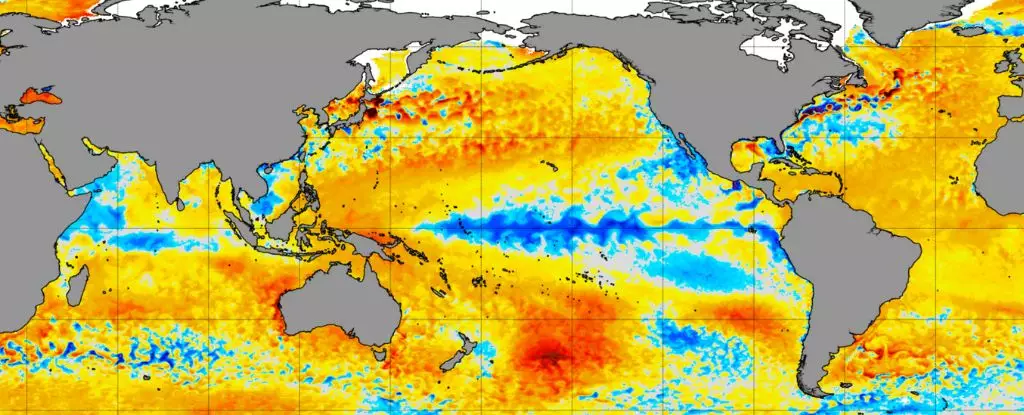The recent surge in global temperatures has ignited an unprecedented wave of climate-related disasters across the globe, raising alarms in the scientific community. With catastrophic events, such as the persisting wildfires in Los Angeles and the devastating floods in Valencia, scholars are racing against time to understand the underlying factors contributing to this alarming trend. Recent data from our oceans reveals a worrying spike in sea surface temperatures, which are rising at an unprecedented pace. Researchers from the University of Reading in the UK have reported that ocean surface temperatures are ascending more than four times faster than they were in the late 1980s.
By analyzing data from reputable sources such as NOAA ERSSTv5, researchers have concluded that the northern half of the Atlantic Ocean experienced its highest recorded sea surface temperatures for December. Although recognized phenomena like El Niño contribute to temperature fluctuations, they are insufficient explanations for the extent of the rise observed. Alternative factors have been posited, including the impact of water vapor accumulation due to the 2022 Hunga Tonga-Hunga Ha’apai eruption and regulatory changes in shipping practices that have resulted in reduced surface-cooling aerosols. Furthermore, a peak in the current solar cycle may also be altering heat dynamics. However, even when all these factors are considered together, they fall short of fully elucidating the meteoric rise in temperatures.
Meteorologist Chris Merchant and his team utilized satellite data spanning from 1985 to the present to analyze changes in sea surface warming rates. They uncovered that the rate of warming increased from a relatively modest 0.06°C per decade in the 1980s to an alarming 0.27°C per decade today. This increase is not merely linear; it signifies an accelerating trend that could have grave consequences.
Merchant’s analogy likens the ocean to a bathtub filled with water—where the slow flow of hot water in the 1980s has transformed into a fast-flowing tap in contemporary times, resulting in rapidly rising temperatures. The researchers elucidate that while a fraction of this recent heat surge can be attributed to the El Niño phenomenon, a staggering 44% is due to the oceans’ unexpected capacity to absorb heat much faster than earlier models had forecasted.
The implications of these changes are dire. If current trends continue unmitigated, experts warn we might surpass the sea surface temperature increase observed over the last four decades within the next twenty years. This accelerated warming trend not only threatens delicate marine ecosystems but also wreaks havoc on agriculture, increases food insecurity, and exacerbates health problems arising from climate-driven disruptions.
The ramifications of these findings are far-reaching and underline an essential but troubling insight: past patterns of global warming are inadequate indicators of future change. This reality entrenches the urgency for drastic reductions in fossil fuel consumption. Merchant and his colleagues stress that immediate action is paramount; policymakers must be cognizant of the accelerating climate crisis and employ stringent measures to mitigate carbon emissions.
Scientists have diligently proposed numerous plans to navigate our planet back to safety, advocating for transformative approaches in energy production and consumption. Despite decades of knowledge regarding the necessary steps, the fossil fuel industry, often bolstered by government subsidies, continues to exacerbate the climate crisis. It is only through collective, concerted efforts—whether through individual behavioral changes or systemic governmental reforms—that we can begin to avert the worst outcomes of this ongoing catastrophe.
Every small step taken to reduce fossil fuel reliance contributes to a larger initiative that may save countless lives in the future. As we navigate through this turbulent timeline, it’s crucial we recognize our shared responsibility in addressing climate change. Ignoring the current trajectory of our planet would be a grave mistake; understanding and acting on these insights is vital for the survival of our ecosystems, societies, and ultimately, humanity itself. Now more than ever, the words of scientists carry weight—not only in their warnings but in their calls for immediate and steadfast action.

